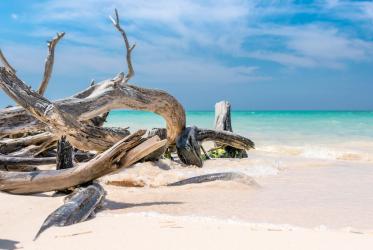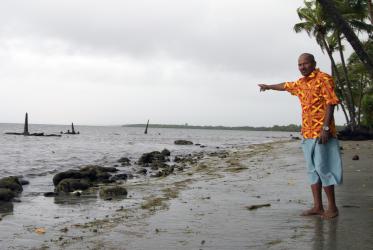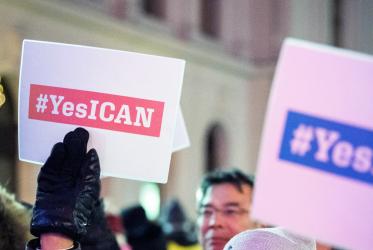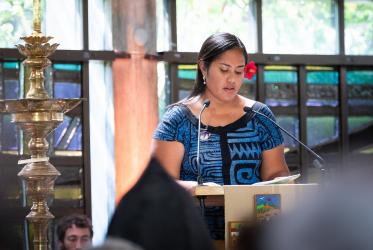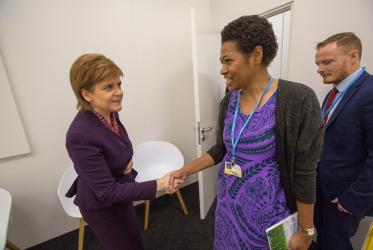Displaying 41 - 60 of 102
26 February 2020
WCC prays for Caribbean region in wake of strong earthquake
31 January 2020
The cry of the Papuans in Indonesia
14 November 2019
New academic year underway at Ecumenical Institute, Bossey
18 September 2019
In Fiji, young people ‘walk the talk’ with advocacy
12 September 2019
WCC supports UN petition from French Polynesia
07 November 2018
#WCC70: A night talk with Fidel Castro
06 September 2018
Diakonia: “a tool to reach abundance of life”
24 July 2018
Young people play key role during papal visit
22 June 2018
An advocate for family values, called by God
26 March 2018
Seven weeks of Lent highlight water justice in Latin America
12 February 2018
WCC presents interfaith statement to COP23 high level plenary
16 November 2017
First minister of Scotland meets WCC delegation at COP23
16 November 2017

